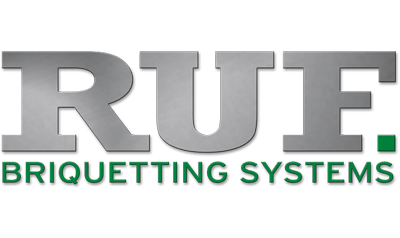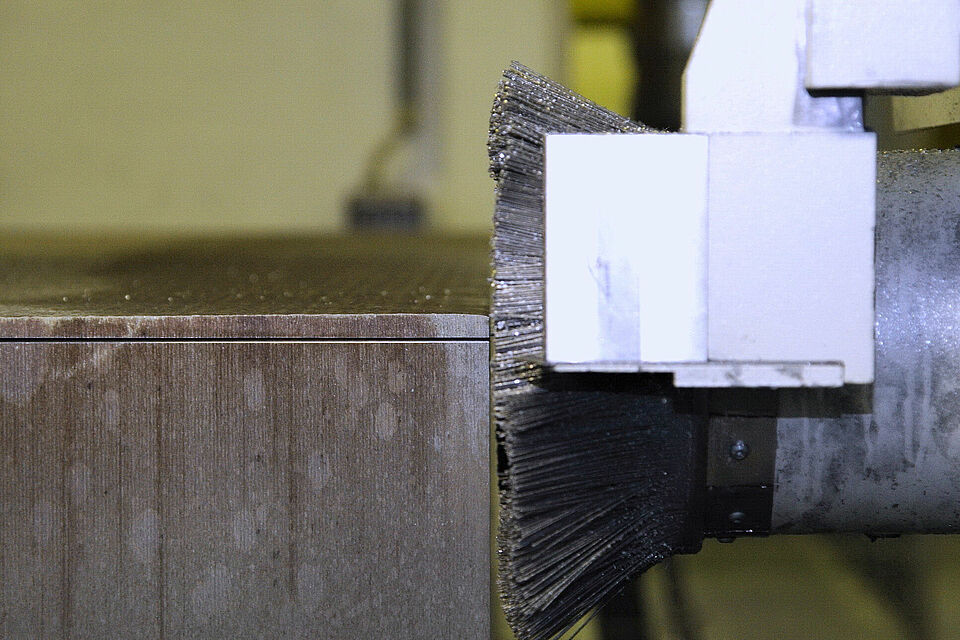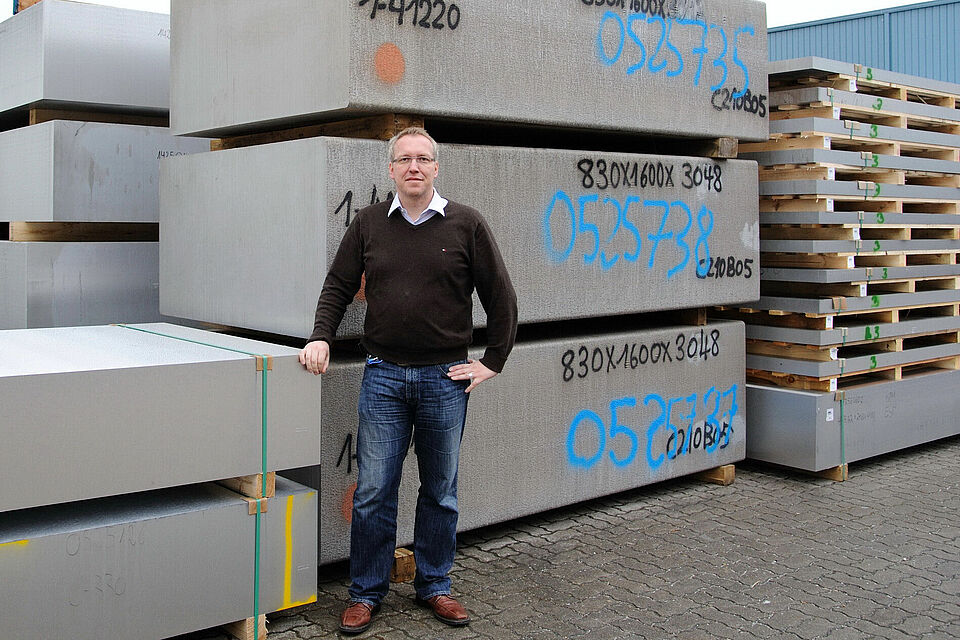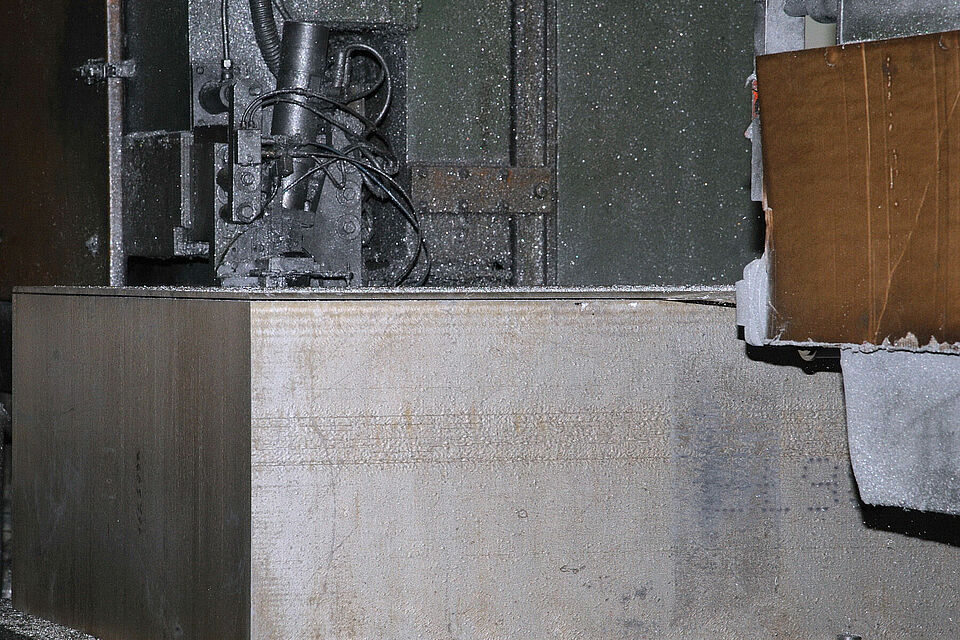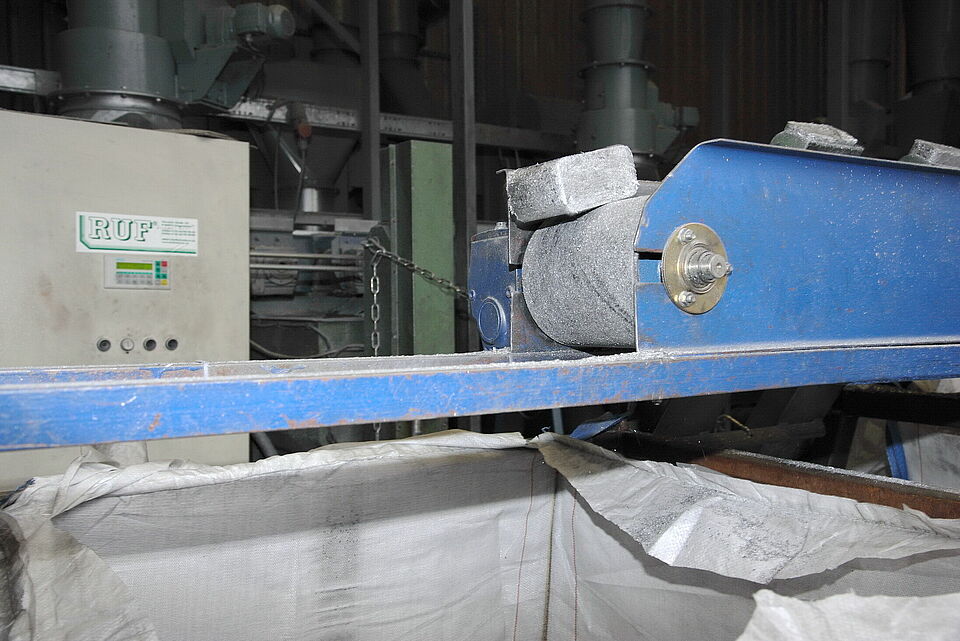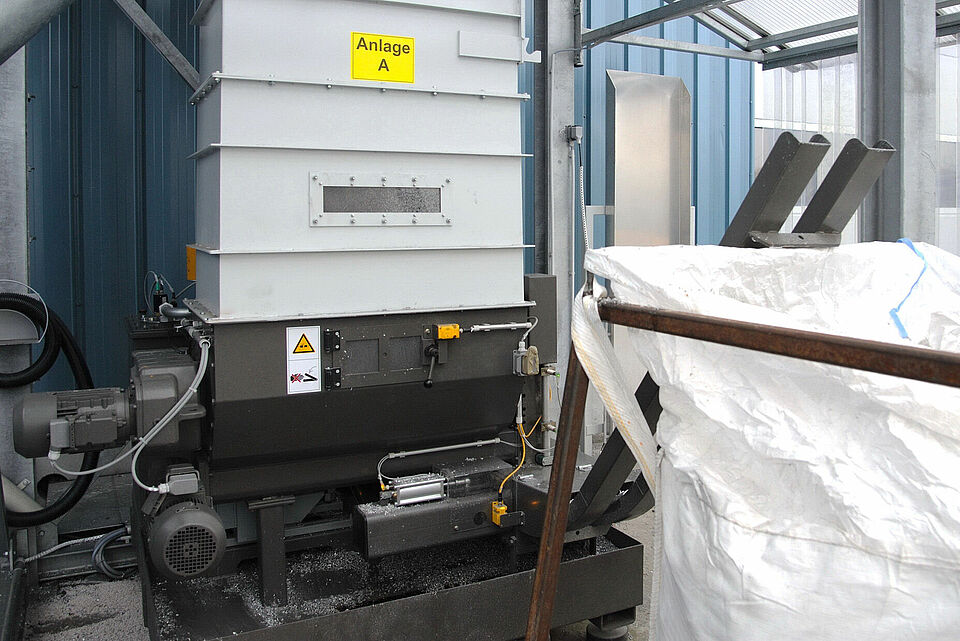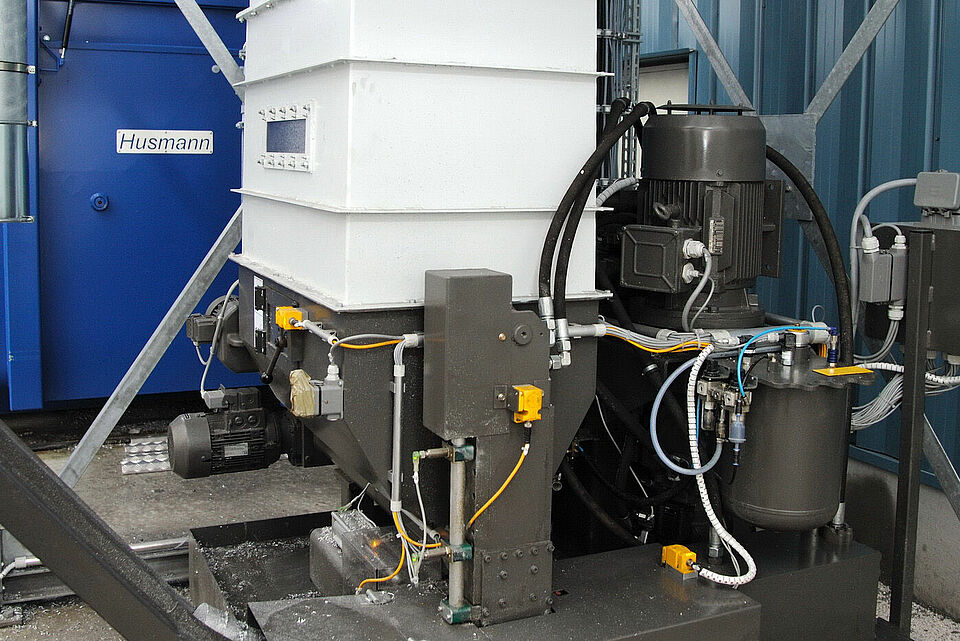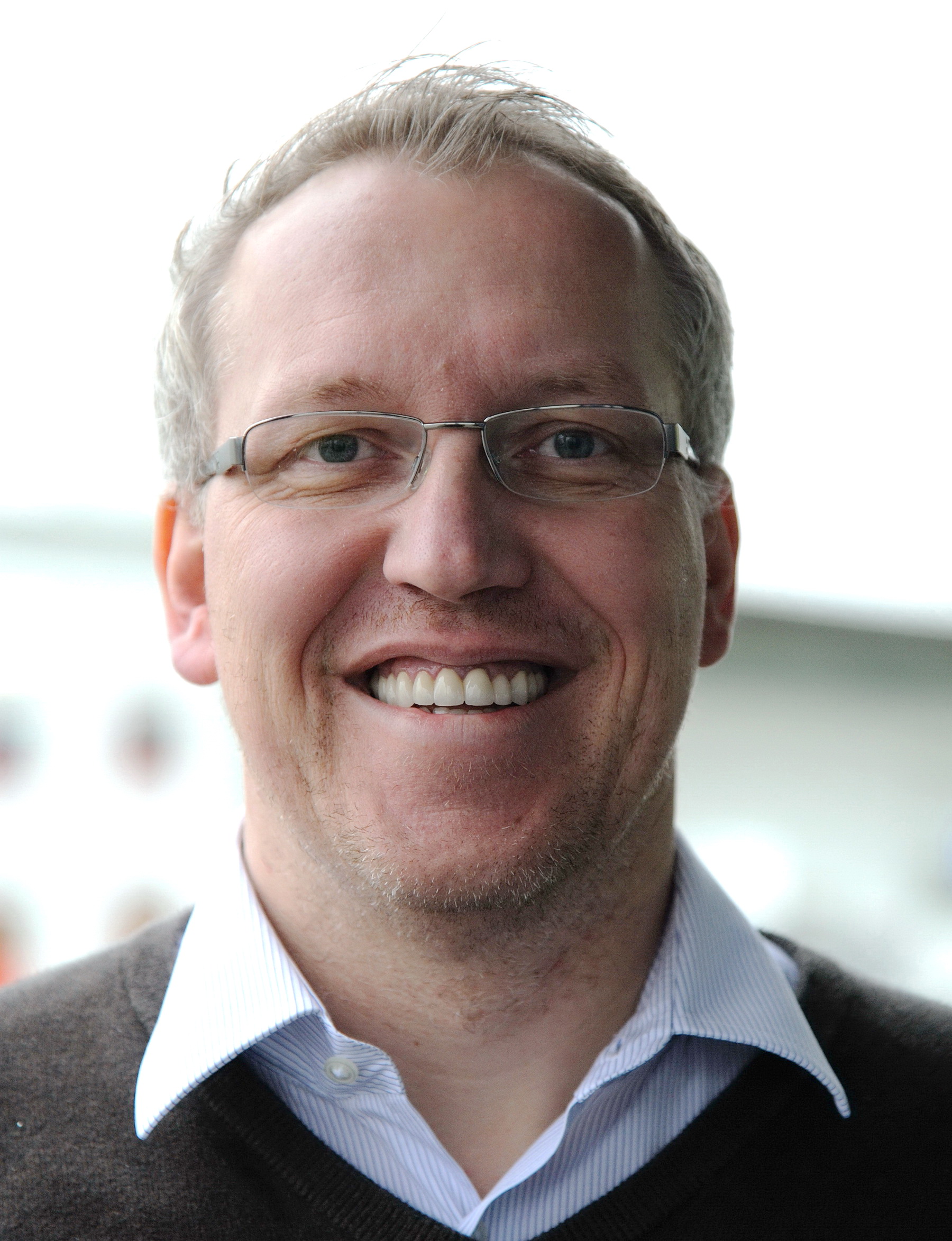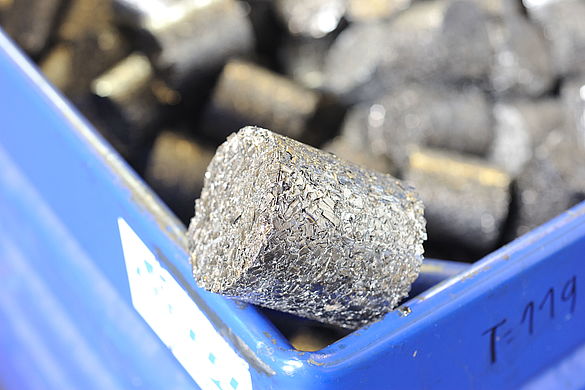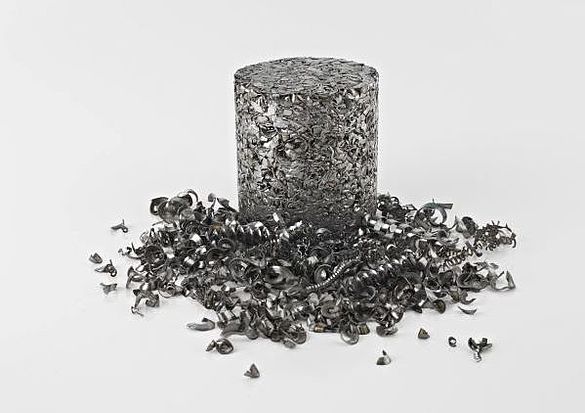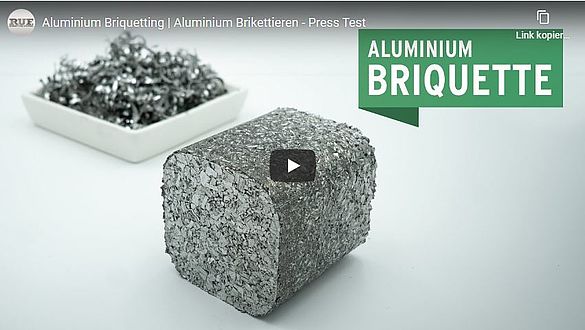The GLEICH group increases its profitability by compressing 3,800 tonnes of swarf each year
Should you just send the metal swarf created during manufacturing to the scrap dealer or should you increase its value by selling it for profit? The GLEICH group discovered the answer to this around ten years ago. Since then, the family-run business has been turning its aluminium swarf into briquettes. These are easy to transport and can be very efficiently melted down. This has proven to be such a cost-effective solution that GLEICH, the specialists in high-quality aluminium cast plates, has over the years commissioned six briquetting machines supplied by RUF, and every year they compress on average 3,800 tonnes of swarf.
The company was founded in 1980 by Christel and Günter Gleich in Kaltenkirchen, in the Schleswig-Holstein area of northern Germany. At that time, the founders themselves operated the machinery, buying in aluminium rolled and cast plates and cutting them to suit their customers' specific requirements. In the early 1990s, the owners expanded their company to focus on the design, production and sales of their own G.AL® Aluminium Cast Plates. Today, GLEICH employs around 160 staff and is one of the world's leading companies in this particular product sector. Its success has been largely due to its top-quality products, manufactured using efficient processes and state-of-the-art technology. It produces cast plates made of aluminium wrought alloys that are extremely homogenous and have very high dimensional stability. The primary material of these alloys consists of aluminium rolled ingots that are cast under contract by foundries based in Western Europe, in line with Gleich's own in-house standards. They are cut into plates and then precision-milled on both sides to create the final plates.
But there is much more involved than just cutting and milling these special types of semi-finished aluminium products. The company's depth of expertise is shown in the procedure it has developed to heat-treat the aluminium ingots after delivery to its works. This treatment is carried out in special annealing furnaces, giving the G.AL® products their special characteristics of extremely low tension, homogeneity and almost isotropic material characteristics with outstanding strength.
It is only in this way that the manufacturer can produce extremely precise forms, gauges and jigs or other devices in an economical way. Head of production, Andreas Sieg, explains the background: "If there is tension or instability in the primary material as a result of unprofessional heat treatment, it can lead to uncontrolled distortion in the finished components during machining. This would really be a death knell, not just for precision tools but for any components manufactured from this material."
Recover expensive lubricants using RUF briquetting machines
One advantage of briquetting is that it squeezes out expensive lubricants during pressing, but this does not apply in the case of the GLEICH group. However, this is an important advantage for many other manufacturers. If coolants are still clinging to the materials after machining, then this reduces the market value of the aluminium. On top of this, the lubricant itself is wasted if it is simply left in the swarf and disposed of. Briquetting deals with both of these problems: the lubricants are to a large extent removed from the swarf and can be collected for recycling.
Loose swarf is difficult to handle and recycle
In total, the GLEICH group processes around 25,000 tonnes of aluminium each year. Swarf is a by-product of cutting the plates. A 17-meter-long bandsaw produces plates from ingots weighing up to 18 tonnes. Large amounts of aluminium swarf are also created during precision milling of the cast plates, customized cutting using circular saws and the CNC production of finished components. The company now has six RUF machines so that almost 100% of the swarf can be sorted and pressed into briquettes ̶ around 550 kg per hour, 3,800 tonnes per annum.
This is extremely efficient in terms of the bottom line. Loose aluminium swarf is also a valuable raw material, but it is difficult to recycle because of its bulk. It takes up a lot of space during storage and transportation. And, most importantly, melting it down just results in a loss because a large proportion of the swarf swirls upwards and burns up in the melting furnace. Compressing the swarf means that GLEICH can avoid this "burn off" and also remove the storage and transportation problems. This results in higher profits, as Managing Director, Christel Gleich, explains: "The briquettes that we make in this way can then be sent to the foundries that supply us with aluminium ingots. This recycling process saves a great deal of energy and resources. Everyone is a winner, and it is an important part of our company's environmental policy."
Absolute reliability is needed for round-the-clock operation
The GLEICH family business has been using briquetting technology for the last ten years. Before that, it simply sold the loose swarf that it produced. The company's management were always looking for ways to improve their business, and had the idea of compressing the swarf in order to increase its value. Roland Gleich, who now runs the company alongside his mother, Christel Gleich made an initial rough calculation and came to the conclusion that the necessary investment could be amortised within a very short space of time.
As a result, the first briquetting machine was purchased in 2001. "The RUF briquetting presses can work unmanned, 24-hours a day, which is ideal for our production processes. The whole process ̶ from the swarf to the collection of the briquettes ̶ is extremely reliable." This is particularly important for the company, as it runs the machines 24 hours a day, 5 days a week, and even, if necessary, 7 days a week, all totally unmanned. Andreas Sieg comments: "If the briquetting machine breaks down, our whole production process grinds to a halt."
The only thing that has to be done manually is emptying the collection containers
The machines have an output of between 80 and 630 kg per hour. Their maximum specific briquetting pressure is between 1,700 kg/cm² und 2,400 kg/cm². They produce cube-shaped and cylindrical briquettes. The briquetting process significantly reduces the volume of the swarf. Afterwards, the briquettes have a density of around 2.2 g/cm3 and therefore come close to the density of compact aluminium (2.7 g/cm3). In a 24-hour period, instead of having several containers full of aluminium swarf, all that remains is around 6 m3 of briquettes.
The swarf is sorted according to the different alloys that are processed by GLEICH. This is done using a central suction device with two cyclone separators that can be alternated as required. A briquetting machine is positioned underneath each separator. The briquettes produced are then transported by conveyor to large plastic containers. Each of these "Big Bags" has a capacity of 1 m3, and two of them are positioned at each briquetting press. Once one of the containers has been filled with a specific number of briquettes, the conveyor belt changes direction and fills the second container at the other end of the conveyor. The only job that has to be done manually is to replace the Big Bags.
The GLEICH group in Kaltenkirchen...
... is a family-run business that was founded in 1980 by Günter and Cristel Gleich. Today it is run by Cristel Gleich and her son, Roland. With its G.AL® Aluminium Cast Plates, the company has earned itself a leading position in the international marketplace. G.AL® Cast Plates have exceptionally low tension, dimensional stability, excellent homogeneity and almost isotropic material characteristics with outstanding strength. The heat treatment of the ingots and the whole production process for G.AL® Cast Plates is carried out at the company's headquarters in Kaltenkirchen, about 30 km north of Hamburg, and conveniently situated close to the A7 motorway.
These plates are then customized at the North Service Centre in Kaltenkirchen, the East Service Centre in Blankenhain (Thuringia, Germany) and the CZ Service Centre in Liberec (Czech Republic). The product portfolio includes whole aluminium cast plates and rolled plates, along with cuttings, circular blanks and rings, aluminium round rods and lightweight composite plates. At GLEICH-Zerspanungstechnik, the company's machining technology division, which is also located in Kaltenkirchen, customers can also be supplied with components based on customers' drawings made on CNC machines. More than 40 percent of all G.AL® products are sold in Europe, Asia, Latin America and North America. This global presence means that GLEICH is an international market leader in this product sector.
Plug-and-play
Over the years, GLEICH has increased its stock of RUF briquetting machines and now has six presses in operation. The last of these was commissioned in mid-2011. At that time, the GLEICH North Service Centre in Kaltenkirchen moved its cutting operations to new premises and significantly expanded its capacity. The Service Centres use circular and bandsaws to cut the plates to suit their customers' specific requirements. This increased production capacity produced greater quantities of swarf, meaning that a more powerful RUF machine was needed in order to increase briquetting capacity. As usual, this presented no problems. A machine was installed that the Head of Production, Andreas Sieg, described as being basically "plug-and-play".
GLEICH has installed RUF briquetting machines at its main facility in Kaltenkirchen, and also in its Service Centres in Blankenhain (Thuringia, Germany) and in Liberec (Czech Republic).
